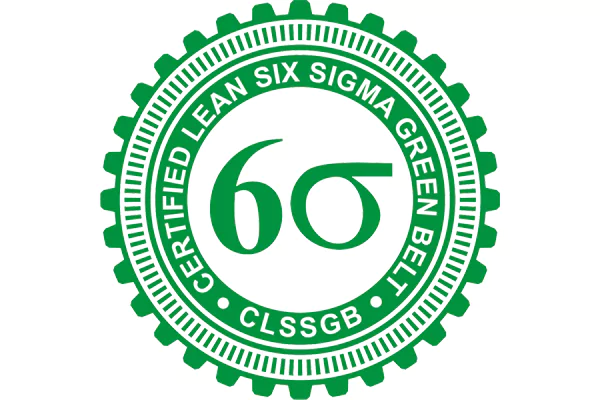Course Curriculum
Course Content
- Understanding the fundamentals of Lean and Six Sigma methodologies.
- Exploring the history, benefits, and principles of Lean Six Sigma.
- Differentiating between Lean, Six Sigma, and Lean Six Sigma.
- Defining the problem or opportunity for improvement.
- Creating project charters and selecting projects.
- Identifying stakeholders and understanding their needs.
- Forming project teams and clarifying roles.
- Collecting and analyzing process data.
- Understanding process metrics and key performance indicators (KPIs).
- Creating process maps and flowcharts to visualize workflows.
- Conducting measurement system analysis (MSA).
- Identifying root causes of process issues.
- Using data analysis tools such as Pareto charts, cause-and-effect diagrams, and scatter plots.
- Applying techniques like process performance analysis and hypothesis testing.
- Generating and evaluating potential solutions to address process issues.
- Applying Lean principles to eliminate waste and streamline processes.
- Implementing changes and conducting pilot tests.
- Implementing controls to sustain improvements.
- Developing control plans and monitoring mechanisms.
- Creating visual management systems and dashboards to track performance.
- Understanding Lean principles such as value, value stream, pull, and flow.
- Applying Lean tools like Kanban, 5S, SMED (Single-Minute Exchange of Die), and Poka-Yoke (error-proofing).
- Learning statistical concepts and their application.
- Using tools such as regression analysis, design of experiments (DOE), and hypothesis testing.
- Exploring process capability and statistical process control (SPC).
- Applying project management principles to Lean Six Sigma projects.
- Identifying risks, managing scope, and tracking progress.
- Ensuring effective communication and stakeholder management.
- Understanding the human side of change and resistance.
- Strategies for managing change and facilitating adoption.
- Enhancing team collaboration and dynamics.
- Analyzing real-world case studies to apply Lean Six Sigma concepts.
- Participating in hands-on exercises and simulations.
- Working on a practical project to demonstrate understanding and skills.
- Reviewing key concepts and tools for the Lean Six Sigma Green Belt certification exam.
- Preparing for the exam through practice questions and discussions.
- Completing a process improvement project that demonstrates application of Lean Six Sigma principles.
- Earning the Lean Six Sigma Green Belt certification upon successful completion of the course and project.
Quick Enquiry
Exam & Certification
- The Lean Six Sigma Green Belt certification exam is usually a multiple-choice format, where you will be presented with a series of questions and need to select the correct answer from the provided choices.
- Some exams may include scenario-based questions that require you to analyze a given situation and choose the most appropriate Lean Six Sigma approach or tool.
Testimonials
Lean Six Sigma Green Belt FAQ's
Lean Six Sigma Green Belt certification validates an individuals understanding of Lean and Six Sigma methodologies and their ability to lead process improvement projects within an organization.
Professionals who want to contribute to process improvement initiatives, project managers, team leaders, quality professionals, and those seeking career advancement in roles involving process optimization.
The process typically involves completing a Green Belt training program, which covers Lean Six Sigma concepts, tools, and methodologies. After training, you will take an exam to demonstrate your knowledge and skills.
While prior experience can be beneficial, many Green Belt programs are designed to accommodate beginners. Some familiarity with basic statistical concepts and process improvement is helpful.
Certification showcases your expertise in process improvement, making you a valuable asset to organizations aiming for efficiency and quality. It can lead to career advancement and increased job opportunities.
Yes, Lean Six Sigma certifications are recognized internationally and are highly regarded in industries that prioritize process optimization and quality improvement.
Lean Six Sigma Black Belt certification represents a higher level of proficiency, with more in-depth knowledge and the ability to lead complex projects. Green Belts are often team members on larger Black Belt projects.

.webp)
.webp)


